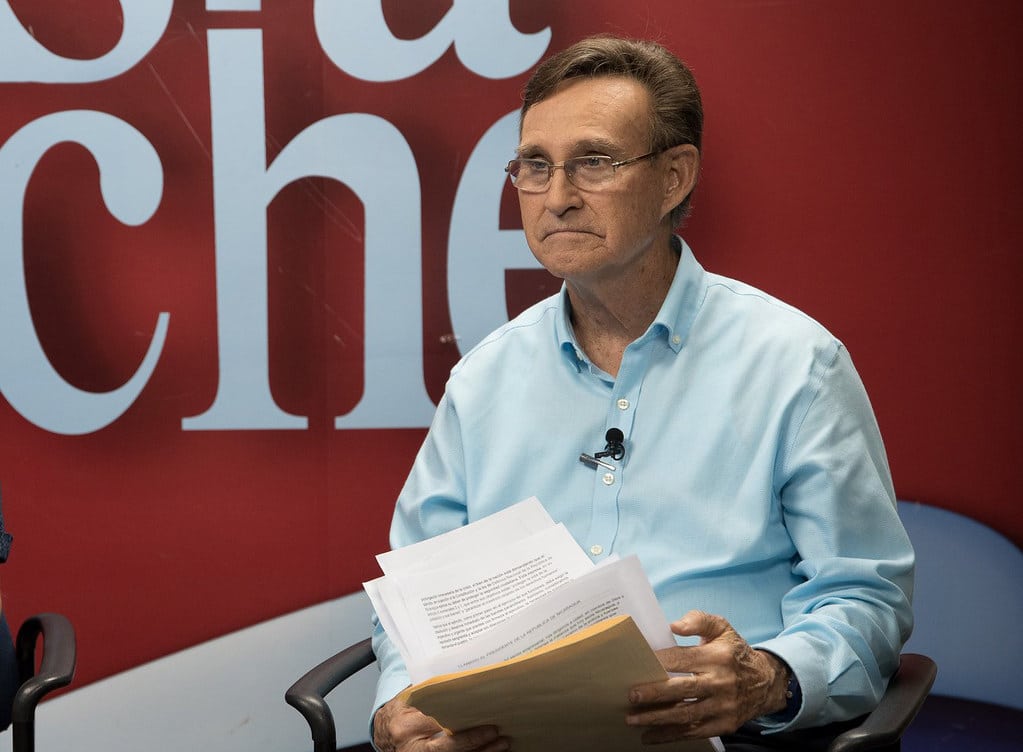The goal of doubling exports to reach US$ 170,000 million in 2030, which President Alberto Fernández presented before the Legislative Assembly, will represent the fulfillment of several challenges, not all of them national in scope and for many of them it will require joint work between successive governments and the private sector.
“The objective is clearly achievable, but there is a new international scenario in which, obviously, the solutions do not depend on us,” said Miguel Ponce, director of the Center for Foreign Trade Studies XXI Century.
The new scenario that arises from the Russian invasion of Ukraine, with a stampede in energy costs and a rethinking of trade, logistics and transit on an international scale, was also analyzed by the consultant and president of the International Chamber of Trade in Argentina, Marcelo Elizondo.
“Last year world trade grew enormously, the sum of exports from all countries reached US$ 28 billion, the highest historical figure,” Elizondo told Télam, later pointing out that “this means that there is a great demand and therefore a great opportunity.

However, he acknowledged that “if events such as the war in Ukraine appear and affects both logistics and transportation such as volatility in international prices, exchange rates, possible sanctions or whatever, they are crises that slow down the international economy and are factors that we can’t handle.”
This new scenario had its prologue with the Covid-19 crisis, which significantly altered international trade in 2020: “80% of transactions go through large value chains, whether in goods or services, and after the pandemic, with the container crisis and the energy crisis, the vulnerability of the longest chains became evident”Ponce pointed out.
If to this is added the Russian-Ukrainian conflict with its increase in fuels and “an energy transition that also generates cost overruns, plus the aforementioned container crisis, the most affected countries are those that are furthest away,” he warned, while pointing out that due to this sum of factors “many shipping companies are rethinking getting here.”
“Last year world trade grew enormously, the sum of exports from all countries reached US$ 28 billion, the highest historical figure”Marcelo Elizondo, president of the International Chamber of Commerce in Argentina
New energy costs are an additional reason to advance in the recovery of self-sufficiencyand Ponce made it clear that “in winter we are going to need US$ 7,000 million for imports in regasification ships”, with the addition that represents the cut in gas shipments from Bolivia.
Looking to the future, Ponce pinned his hopes on the announced President Néstor Kirchner Gas Pipeline, with whose realization “we would become net exporters.”
Elizondo added to the set of challenges “what the country does from the perspective of public policies” in a period of eight years, in which there will be two more presidential terms.
In this regard, he called for “a more efficient public administration” and warned that the exchange restrictions “represent a very large discount to the exporter in terms of the pesos he receives for the gap”in addition to emphasizing improving public infrastructure, with “better logistics, transportation and ports.”

For Ponce, the simplification of bureaucratic procedures is a central aspect and he advocated what he called “the efficiency of the counters”, in order to avoid that “SMEs should have offices specially dedicated to dealing with these problems.”
The former Undersecretary of Industry and Commerce also emphasized the “severe problems in the 250,000 kilometers of roads” that make up the entire network and “take away our competitiveness, much more if we take into account that 95% of merchandise transport is by truck”, for which he also urged to promote “a more accelerated railway development”.
Refering to currency gapurged its revision because, he assured, “there are SMEs that cannot even produce the replacement of what they export”.
“The objective is clearly achievable, but there is a new international scenario in which, obviously, the solutions do not depend on us”Miguel Ponce, director of the Center for Foreign Trade Studies XXI Century
Elizondo added to the agenda the inconveniences generated by the access to importsif one takes into account that “the average imported content in the exports of the countries according to the OECD is 25%, when in Argentina it is 6%”.
Likewise, he stressed the importance of competing with the generation of value and quality, rather than by lower costs, a task in which, he remarked, “the private sector is needed to compete.”
“Today the private sector has a low investment rate, approximately 16% of GDP, when the world average is 25%,” he said.
Ponce expressed himself in the same sense, for whom “less and less what is related to tons is exported and more and more what is intangible, such as design and structural calculations.”

Likewise, he urged the search for ways to “improve the source of financing for exports”, highlighting in this regard the role in Brazil of the BNDES (National Bank for Economic and Social Development), which covers 80% of sales abroad in that country.
Finally, he stressed the importance of “considering an intelligent relationship so as not to harm commercial ties, beyond ideological issues”, and highlighted the “hat-taking” task of the ambassador to Brazil, Daniel Scioli, in the promotion of exports of regional economies and the reopening of marketing channels.















